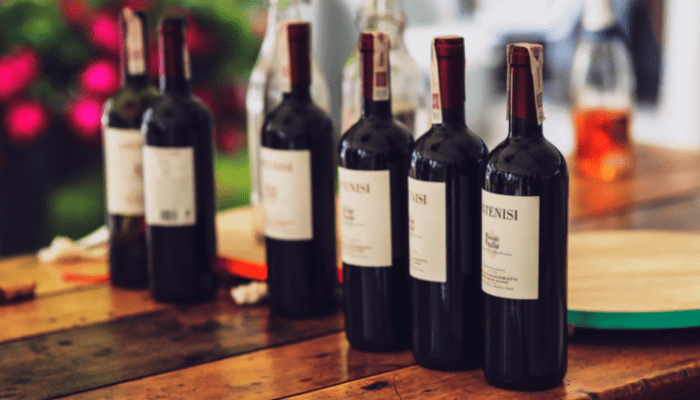
If you are a regular wine drinker it is almost certain that you have opened a corked bottle or two in your time. As a result of a tainted cork, the wine smells and tastes unpleasant - all musky and mouldy.
After the initial disappointment, you then have the worry of trying to get your money back from the wine shop or supermarket. Or you may face an awkward conversation with a supercilious wine waiter, whose boss might not take kindly to reimbursing you, especially if it was an expensive bottle and the taint isn't too prominent. Figures for how many cork-sealed wine bottles are affected by cork taint are hotly disputed, but a 2007 study put it as high as one in 10.
With reputations on the line, and money lost on wine tipped down sinks, it is not surprising that winemakers around the world are continuing to ditch corks for metal screw-cap openings on their bottles. So much so that cork went from sealing 95% of wine bottles globally in the 1990s, to just 62% in 2009
But first, what exactly is cork taint? It is caused by a chemical compound known as TCA. In very simple terms, TCA is created by tiny airborne fungi that have attached themselves to the cork. It isn't harmful, but it can make your wine taste bad, or alternatively strip it of flavour.
In 1971 New Zealand turned to screwcaps, where usage increased from 1% in 2001 to 70% by 2004, and perhaps 90% today ? Indeed, the country can be credited for making the screwcap almost the default closure for aromatic white wines worldwide. But it wasn’t only the New World that went against cork; a major signal that the traditional closure may be in trouble came with Domaine Laroche’s decision to seal its Chardonnays from the 2001 vintage in Chablis with screwcaps – including its grands crus.
But just how bad was TCA in finished wine (whether from corks or sources such as barrels or storage containers)? Domaine Laroche claimed 10% of their wines were spoiled, while 2004’s International Wine Challenge in the UK had figures showing 4.9% of the 11,000 bottles opened had perceptible TCA taint.
In 2005 a Wine Spectator blind tasting of 2,800 bottles produced a headline-grabbing figure of 7% for wine taint. Such evidence inspired the invention of various techniques to guarantee TCA-free corks, from steam cleaning to more complex processes, such as supercritical fluid extraction.
At the same time, plastic corks became mainstream.
However, early examples frustrated consumers who couldn’t remove them from corkscrews, and the weak seal between plastic and glass also led to high levels of oxygen ingress after 18 months, as highlighted by an Australian Wine Research Institute survey in 2001. This was not a problem for naturally elastic cork. As the level of TCA in wines sealed under cork began to drop, the debate shifted to other properties of the various closures.
A good alternative to natural cork is a cork called ‘’Diam’’

Developed by a French firm of the same name, Diam corks are made by milling cork into granules which are treated with carbon dioxide to remove any TCA, before being pressed and glued into a cork shape. Diam corks are now growing quickly in popularity, particularly among French winemakers aiming at the middle market.
A wine sealed with a Diam cork is virtually guaranteed free of cork taint.
Mark Pardoe, a master of wine at UK merchant Berry Bros & Rudd, says that natural cork is still the
"preferred closure for wines that require cellarage".
He adds: "Its elasticity and ability to allow a very gentle oxidation when a wine is correctly stored makes it a still-unsurpassed closure for long-term wines.
The debate is still ongoing, but screw capped wine is now the preferred closure for most of our customers, hotels, restaurant, and private clients in the Philippines.
Your Author
Lester Harvey is the managing director of Zen Asia Inc and lives between Manila and Cavite. Lester came from New Zealand to the Philippines over 44 years ago and has been supplying a full range of high quality wines to businesses across the country.
Don't forget, members of ANZA Manila get an incredible special offer from Zen Asia Inc. Order one case (12 bottles), and they'll give you one free bottle of our choice.
If you are a regular wine drinker it is almost certain that you have opened a corked bottle or two in your time. As a result of a tainted cork, the wine smells and tastes unpleasant - all musky and mouldy.
After the initial disappointment, you then have the worry of trying to get your money back from the wine shop or supermarket. Or you may face an awkward conversation with a supercilious wine waiter, whose boss might no